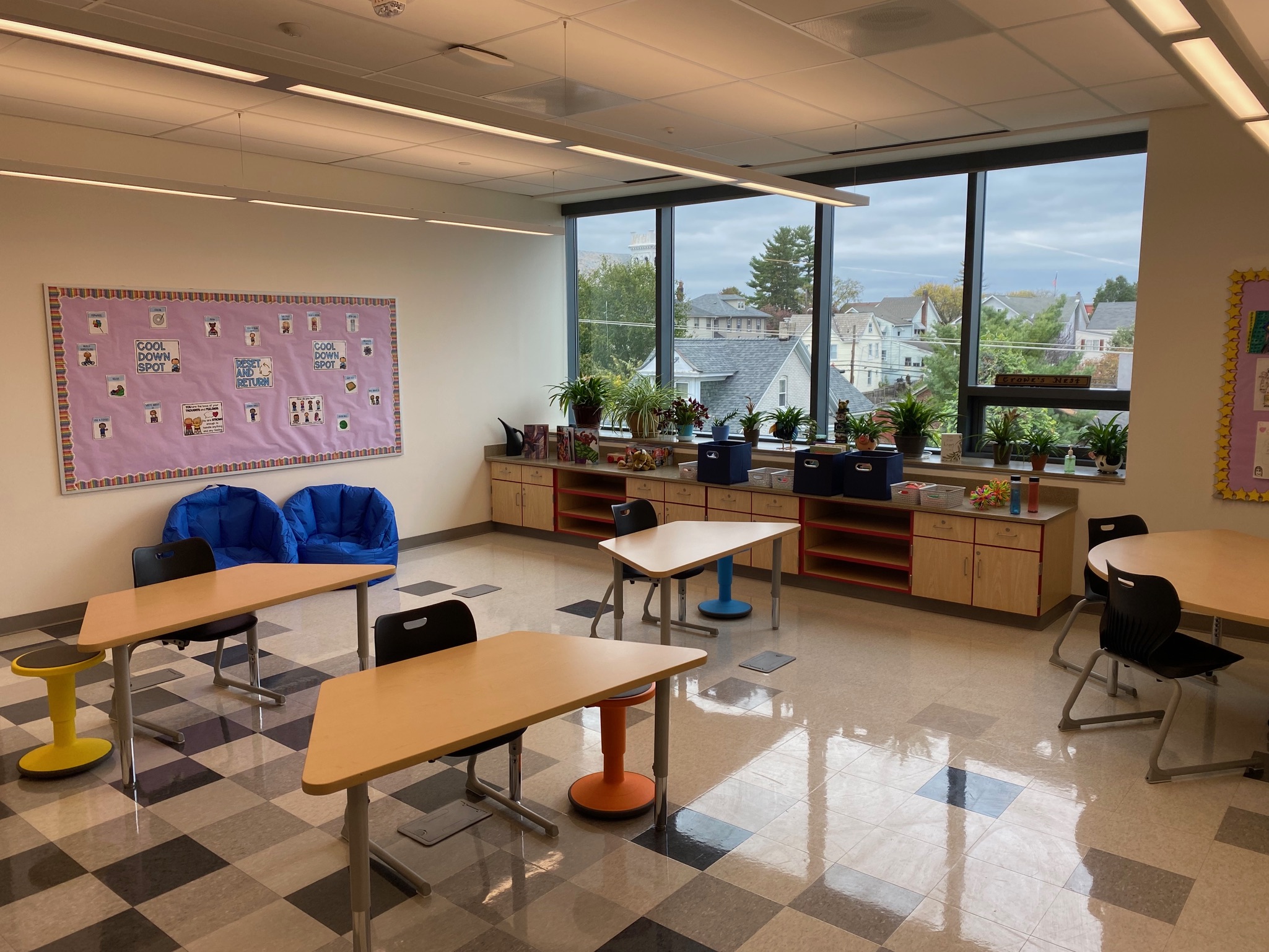Did you know approximately two out of every three school-age children are likely to experience at least one traumatic event by age 17? From school shootings that shock the nation to the daily toll of violence, poverty, abuse, and addiction in our communities, students often experience traumatic events that can impact cognitive, academic, and behavioral outcomes and shape their lives forever.
The long-term effects of Covid-19 are no different. During the 2020-2021 school year, an analysis of 4.4 million student test scores showed most children fell short in math and other subjects — and the most vulnerable students likely fell further behind.
In 2017, Paxinosa Elementary School, a community school in Easton Area School District supported by Communities in Schools of Eastern Pennsylvania, United Way of the Greater Lehigh Valley, and Crayola, Inc, suffered low staff satisfaction and increased disciplinary measures. A survey revealed toxic stress and adverse childhood experiences (ACEs) as the culprits.
Principal Elise Jones assembled an action plan to transform Paxinosa into a Trauma-Informed School – one in which staff is trained in childhood trauma, how trauma and toxic stress impact the brain, and trauma-informed classroom practices. Pinebrook Family Answers and Lehigh University’s Dr. Chris Liang were able to provide trauma awareness and trauma-informed school training for the Paxinosa staff thanks to funding provided by United Way of the Greater Lehigh Valley.
With assistance from the Lehigh Valley Volunteer Center’s Volunteer Challenge and a partnership with Valley National Financial Advisors, an old teacher’s lounge was transformed into a “Just Press Pause Room” for staff. The beautiful space was equipped with massage chairs, scented diffusers, yoga mats, calming music, and lighting to encourage staff to take a break, relax and recharge their emotional and mental batteries.

“Trauma can plague students with intrusive thoughts that distract them from absorbing information in lessons, paying attention in class, or studying. When a student is suffering, our teachers feel the impact of the vicarious trauma,” said Dr. Karen Trinkle, Director of Student and Community Services, Easton Area School District. “By prioritizing student and teacher mental health, we’ve seen an increase in academic performance, behavior, and morale overall.”
As of March 2020, Paxinosa has seen a significant increase in staff satisfaction and a decrease in student discipline. Discipline referrals shrunk from 218 in the 2017-2018 school year to only 72 in the 2019-2020 school year, a 200% drop.
“With an increased understanding of the impact that trauma has on students, as demonstrated in behavior, leaders at Paxinosa and within the school district recognized a need for balancing accountability, response to discipline, and support to mitigate the impact on academic achievement,” said David Piperato, Superintendent, Easton Area School District. “The importance of strengthening teacher-student relationships, through comprehensive social-emotional strategies, was necessary based upon the understanding of leaders and educators of how trauma can impact students in an educational environment. This impact was far-reaching into the culture of the community, and resulted in a transformation of the educational environment.”
Thanks to the success of trauma-informed care on both student and staff outcomes at Paxinosa, Easton Area School District is scaling up its implementation of trauma-responsive school training. With designated funding from the school district, Easton Area Middle School and Easton Area High School are joining Paxinosa on the trauma-informed journey. Cheston Elementary School, also a community school supported by United Way of the Greater Lehigh Valley, Communities In Schools of Eastern PA, Crayola, Victaulic and Follett, is currently in its second year of the Trauma Responsive Schools program and also has a “Just Press Pause” room.
“Positive childhood experiences – like feeling a sense of belonging in school and having at least two non-parents genuinely care – buffer the negative impact of adverse childhood experiences (ACEs). A trauma-informed school approach creates a safe, supportive learning environment focused on healthy relationships for both students and staff,” reflected Beth Tomlinson, Senior Director of Education with United Way of the Greater Lehigh Valley and co-founder of Resilient Lehigh Valley. “We are devoted to helping schools throughout the region begin their trauma-awareness journey and better address the social-emotional-mental health needs of both students and staff.”
To learn more about becoming a Trauma-Informed School, click here.







